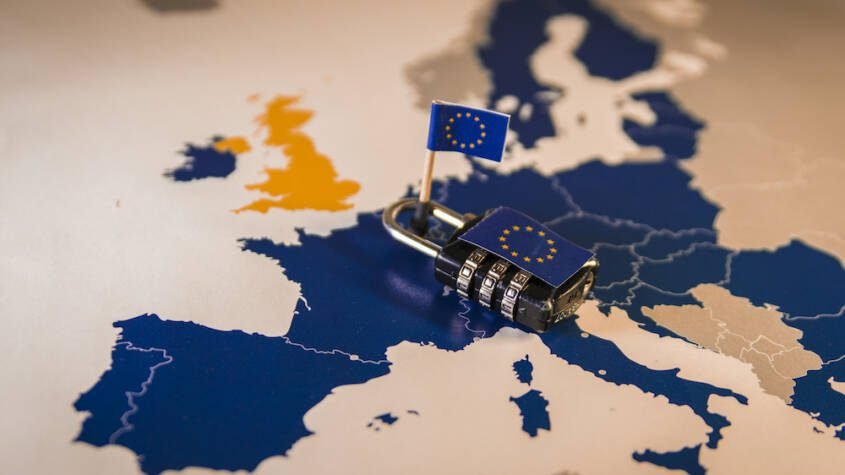Link to the original Press Release from the European Commission
Today, the European Commission adopted its adequacy decision for the EU-U.S. Data Privacy Framework. The decision concludes that the United States ensures an adequate level of protection – comparable to that of the European Union – for personal data transferred from the EU to US companies under the new framework. On the basis of the new adequacy decision, personal data can flow safely from the EU to US companies participating in the Framework, without having to put in place additional data protection safeguards.
The EU-U.S. Data Privacy Framework introduces new binding safeguards to address all the concerns raised by the European Court of Justice, including limiting access to EU data by US intelligence services to what is necessary and proportionate, and establishing a Data Protection Review Court (DPRC), to which EU individuals will have access. The new framework introduces significant improvements compared to the mechanism that existed under the Privacy Shield. For example, if the DPRC finds that data was collected in violation of the new safeguards, it will be able to order the deletion of the data. The new safeguards in the area of government access to data will complement the obligations that US companies importing data from EU will have to subscribe to.
President Ursula von der Leyen said: “The new EU-U.S. Data Privacy Framework will ensure safe data flows for Europeans and bring legal certainty to companies on both sides of the Atlantic. Following the agreement in principle I reached with President Biden last year, the US has implemented unprecedented commitments to establish the new framework. Today we take an important step to provide trust to citizens that their data is safe, to deepen our economic ties between the EU and the US, and at the same time to reaffirm our shared values. It shows that by working together, we can address the most complex issues.”
US companies will be able to join the EU-U.S. Data Privacy Framework by committing to comply with a detailed set of privacy obligations, for instance the requirement to delete personal data when it is no longer necessary for the purpose for which it was collected, and to ensure continuity of protection when personal data is shared with third parties.
EU individuals will benefit from several redress avenues in case their data is wrongly handled by US companies. This includes free of charge independent dispute resolution mechanisms and an arbitration panel.
In addition, the US legal framework provides for a number of safeguards regarding the access to data transferred under the framework by US public authorities, in particular for criminal law enforcement and national security purposes. Access to data is limited to what is necessary and proportionate to protect national security.
EU individuals will have access to an independent and impartial redress mechanism regarding the collection and use of their data by US intelligence agencies, which includes a newly created Data Protection Review Court (DPRC). The Court will independently investigate and resolve complaints, including by adopting binding remedial measures.
The safeguards put in place by the US will also facilitate transatlantic data flows more generally, since they also apply when data is transferred by using other tools, such as standard contractual clauses and binding corporate rules.
Next steps
The functioning of the EU-U.S. Data Privacy Framework will be subject to periodic reviews, to be carried out by the European Commission, together with representatives of European data protection authorities and competent US authorities.
The first review will take place within a year of the entry into force of the adequacy decision, in order to verify that all relevant elements have been fully implemented in the US legal framework and are functioning effectively in practice.
Background
Article 45(3) of the General Data Protection Regulation (GDPR) grants the Commission the power to decide, by means of an implementing act, that a non-EU country ensures ‘an adequate level of protection’ – a level of protection for personal data that is essentially equivalent to the level of protection within the EU. The effect of adequacy decisions is that personal data can flow freely from the EU (and Norway, Liechtenstein and Iceland) to a third country without further obstacles.
After the invalidation of the previous adequacy decision on the EU-U.S. Privacy Shield by the Court of Justice of the EU, the European Commission and the US government entered into discussions on a new framework that addressed the issues raised by the Court.
In March 2022, President von der Leyen and President Biden announced that they had reached an agreement in principle on a new transatlantic data flows framework, following negotiations between Commissioner Reynders and US Secretary Raimondo. In October 2022, President Biden signed an Executive Order on ‘Enhancing Safeguards for United States Signals Intelligence Activities’, which was complemented by regulations issued by US Attorney General Garland. Together, these two instruments implemented the US commitments reached under the agreement in principle into US law, and complemented the obligations for US companies under the EU-U.S. Data Privacy Framework.
An essential element of the US legal framework enshrining these safeguards is the US Executive Order on ‘Enhancing Safeguards for United States Signals Intelligence Activities’, which addresses the concerns raised by the Court of Justice of the European Union in its Schrems II decision of July 2020.
The Framework is administered and monitored by the US Department of Commerce. The US Federal Trade Commission will enforce US companies’ compliance.
For More Information
Adequacy decision on the EU-US Data Privacy Framework
Questions and Answers : EU – US Data Privacy Framework
Factsheet – Transatlantic Data Privacy Framework
EU-US data transfers (europa.eu)
International dimension of data protection (europa.eu)
Adequacy decisions (europa.eu)
Joint Statement on Trans-Atlantic Data Privacy Framework (europa.eu)
Cookie consent: 5 harmful designs from UK Regulators’ guidance
The UK’s data protection regulator, the Information Commissioner’s Office (ICO), and …


















